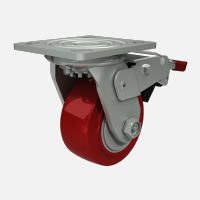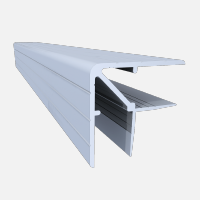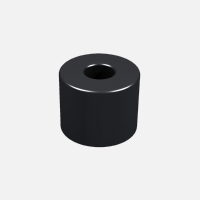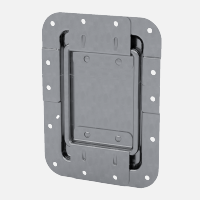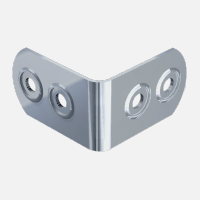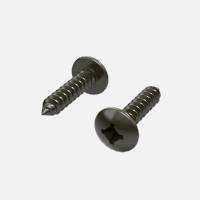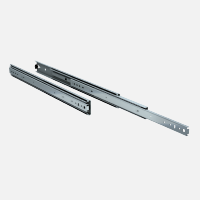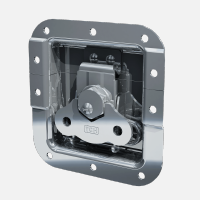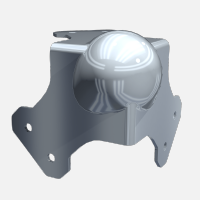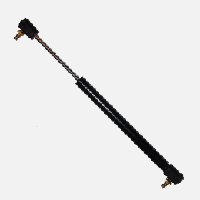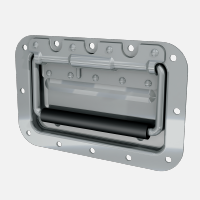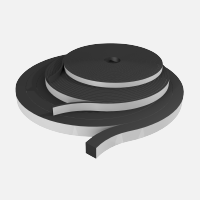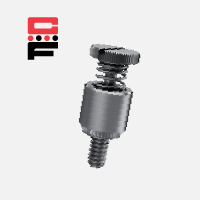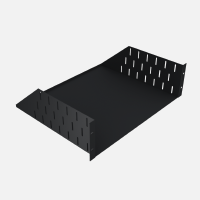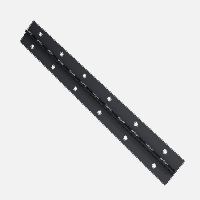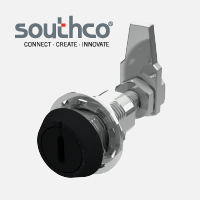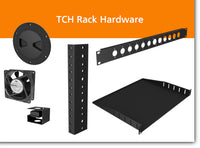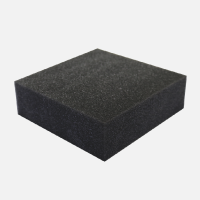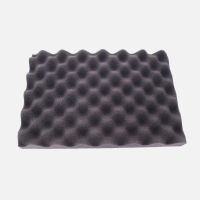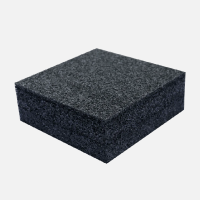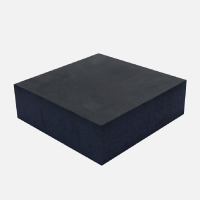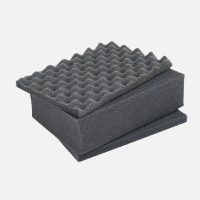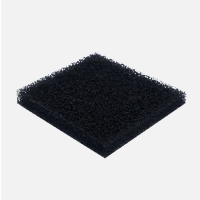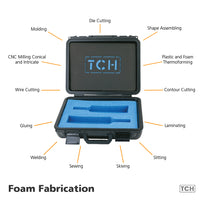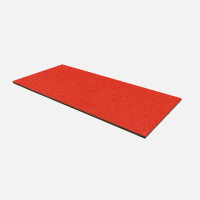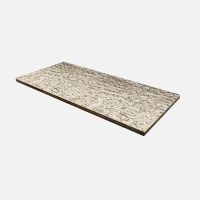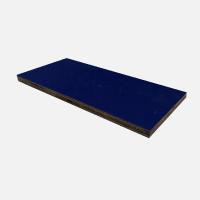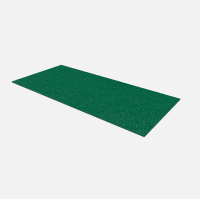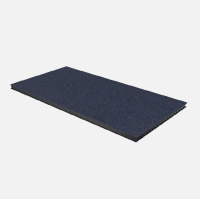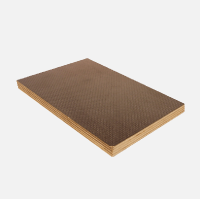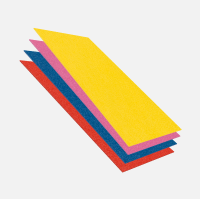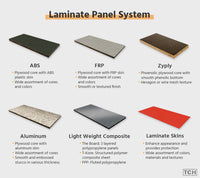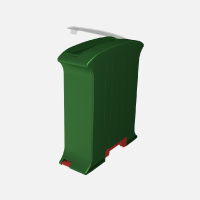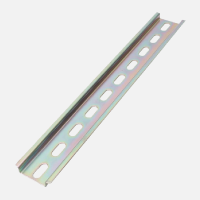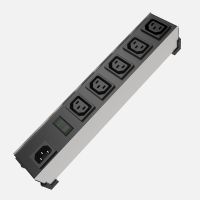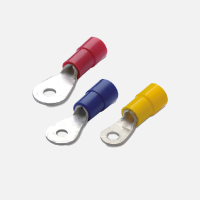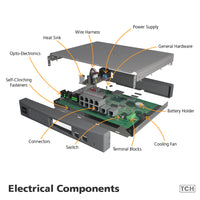Many people often refer to casters simply as wheels, but they're more than just that! In many industries, such as flight case manufacturing, it's essential to be specific with part names. While a caster does involve a wheel, it also features a frame known as a yoke or fork with fasters to hold the wheel in place when it's rolling. A caster is a whole wheel unit that can be attached to other items.
Classified as either institutional or industrial, the difference between the two casters is construction and capacity. Institutional casters are typically made of plastic or another lightweight material. You've probably seen them on furniture or office chairs. Industrial casters are for heavier duty applications that require a larger load capacity. These are found in the flight case industry, transportation applications, racks/cabinets, and more.
Why the Right Caster is Important
There is no one-size-fits-all caster. Your selection and specifications for choosing a caster will depend on multiple factors such as use, size, material, etc. Having the right caster and wheel for your applications is essential for efficiency and safety. It's also vital to know which casters are suitable for when they need replacements. This article will be walking through the options and specifications you should know and keep in mind when purchasing casters.
TCH also has a knowledgeable team to help you select the best casters and hardware for your projects. With over 45 years of experience and roots in the case hardware industry, we are always ready to help! Send your caster questions or project specs to info@tchweb.com or call 800-465-6281.
Choosing the Right Caster
Applications
Someone using it for industrial applications will require more specifications than someone looking to add casters to a flight case. Before choosing a caster, consider some of the following:
- What is the weight of the load(s) you'll be transporting?
- What floor/surface will it typically travel on top?
- Will the environment's temperature be a concern? Weather?
- Will you need resistance to corrosives, chemicals, etc.?
- How often will the casters be used? How far will the travel be?
- Will certifications or standards be required?
- Any aesthetic requirements?
Mobility
Categorized into two main groups, caster's are either rigid or swivel. Rigid casters, also known as fixed casters, do not turn. They are ideal for frequent straight-line movements since they can only go forward and backward. Although it's more challenging to steer rigid casters, they can carry more weight than swivel casters. Swivel casters offer a 360-degree spin, allowing for easier turns and steering. While this can be beneficial, it will take more effort to push since all the wheels need to face the same direction. These are more suitable for short-distance travel since it's challenging to roll straight.
Depending on your application, using both types of casters can offer the best of both worlds. An example of combination usage would be shopping carts; they typically have fixed casters for the back and swivel in the front. This will allow you to steer and turn without concern for the swivel wheels to align.
Size & Load Rating
As a general rule, larger load weights require a larger wheel. This is because the size allows for an even distribution of weight for a smooth and effortless roll. There is also a higher center of gravity with larger wheels that can help stabilize larger and heavier loads. Always ensure that the max load capacity is more than what you plan on moving.
Material
Popular choices for caster wheels include rubber and polyurethane. They both protect floors and can be used on multiple surfaces such as carpet, concrete, wood, and more. Similar to shoes, you want to make sure the material can handle the surface it will be on. Harder materials are more durable and easier to move and roll since there's less starting and rolling resistance. Softer materials have less vibration, which means they are quieter and can prevent damage to the floor surface but have a lower load capacity.
TCH Casters are constructed with a steel or zinc alloy body with the following materials for the wheel:
- Protects floor, non-marking
- Oil and gasoline resistant
- Non-conductive
- Strong, low wear
- Low roll resistance
- Non-marking
- Protects floor
- Chemical resistant
- Shock absorption, cushions load
- Quiet
- Protects floor
- Quiet
- Protects floor
- Chemical and water resistant
- Shock absorption
- High operating temperature range
Surface Area
The casters will likely be on a variety of surfaces from being transported. Generally, hard tread wheels are better for uneven surfaces, while soft tread is more suitable for smooth surfaces. Choose a softer material if the floor needs protection. Additionally, harder wheels provide the advantage of having a lower roll resistance, making it easier to start and continue movement. Softer wheels offer a quieter usage and shock absorption.
Mounting
Plate mount casters have a flat top plate that provides a wider surface area to distribute the weight load. There are holes to allow for mounting of the caster but it can also be welded directly on. This mounting system is popular for carts and industrial applications. Corner and edge mount casters are unique and used often in the flight case industry. It is shaped to be mounted at the edge and corner or cases and cabinets. TCH also offers quick release caster plates which makes removing and securing casters simple and quick.
Brakes
Brakes come in super handy when transporting equipment and cases over long distances. They provide a high level of protection since brakes help secure the items and prevent accidental rolling. Often, a combination of of casters with and without brakes are used.
TCH is Here to Help!
Go through our quick decision guide below to help you narrow down which castors would be the best fit, simply start at the star icon.
Still unsure about which castor to choose? Not to worry, our dedicated team of experts are always here to help! We are ready to answer any questions, offer quotes, and provide you with solutions. If what you require isn't available on TCHweb, we will be happy to source parts for you. Contact us today at info@tchweb.com or call 800-465-6281.




